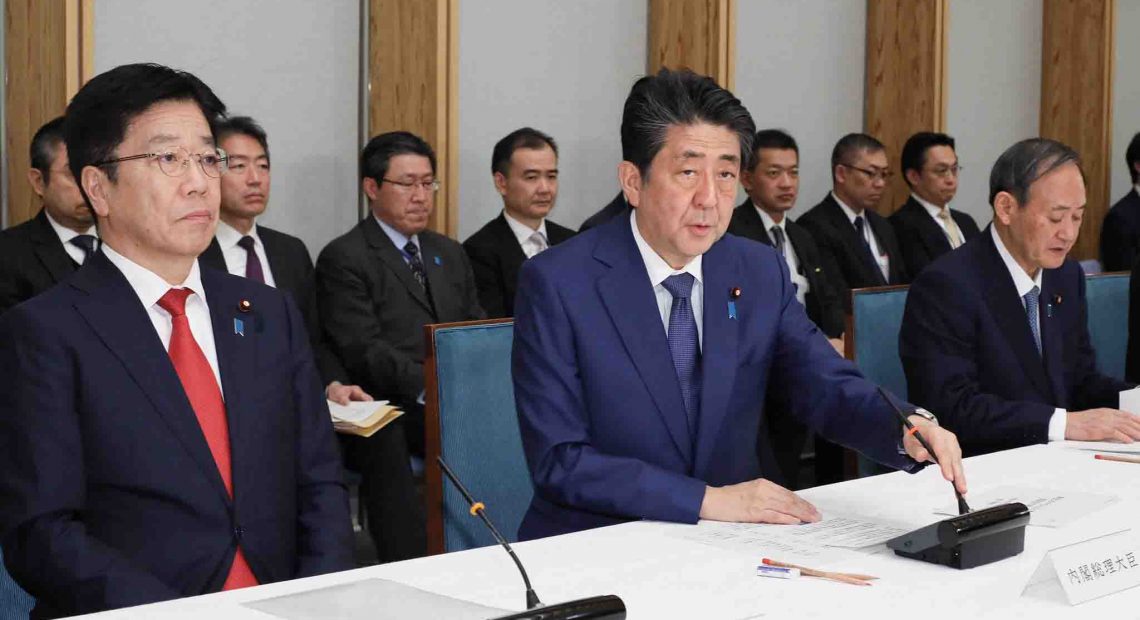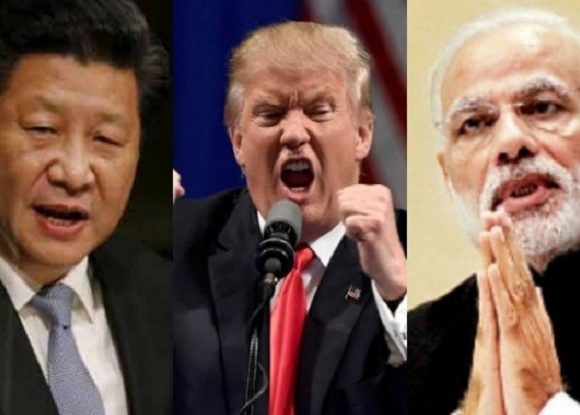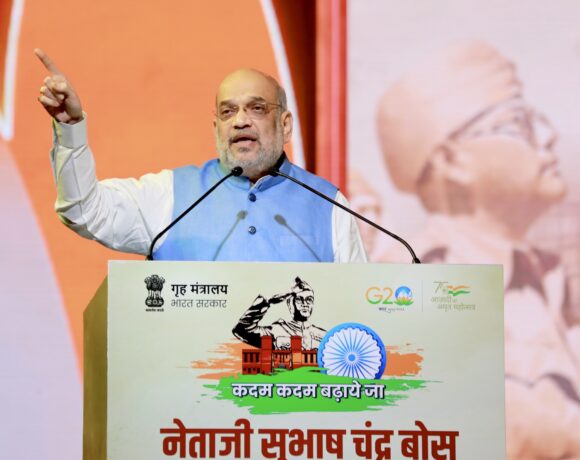

COVID-19 pandemic : Japan set to announce coronavirus emergency, Japanese Prime Minister Shinzo says Japan prepares near $1 trillion stimulus. TOKYO – Japanese Prime Minister Shinzo Abe pledged that his government would do its utmost to protect people’s lives as he prepared to declare a state of emergency on Tuesday to stem a worrying rise in new coronavirus infections in major population centres.
Abe will announce the state of emergency for the capital Tokyo and six other prefectures, for a period of about one month, after earlier on Tuesday getting the green light from a panel of experts.
His cabinet will also finalise a massive stimulus package worth 108 trillion yen ($990 billion) – equal to 20% of Japan’s economic output – to cushion the heavy impact of the pandemic, and the emergency restrictions, on the world’s third-largest economy.
“We have decided to declare a state of emergency because we’ve judged that a fast spread of the coronavirus nationwide would have an enormous impact on lives and the economy,” Abe told parliament.
https://www.facebook.com/Japan.PMO/posts/3654316544640514
Japan has been spared the big outbreaks of the disease caused by the virus seen in other global hot spots, but a recent, steady rise in infections in Tokyo, Osaka and other areas led to growing calls for Abe to announce a state of emergency.
Tokyo has seen coronavirus infections more than double to 1,116 in the past week, accounting for the highest number in the country. Nationwide, cases have climbed past 4,000 with 93 deaths as of Monday.
Abe said on Monday that a state of emergency would stop short of imposing a formal lockdown as seen in other countries.
He said it would allow Japan to strengthen its steps to prevent an increase in infections while ensuring that economic activity is sustained as much as possible.
Yukio Edano, head of the opposition Constitutional Democratic Party of Japan, said the government’s response to the coronavirus outbreak “must be said to have been too slow”, citing delays in banning entry by Chinese visitors.
But he said his party appreciated the decision to declare an emergency, even if it was made too late.
The emergency will give governors the authority to call on people to stay at home and businesses to close. With no penalties for ignoring the requests in most cases, enforcement will rely more on peer pressure and respect for authority.
Tokyo Governor Yuriko Koike said the city was in talks with the central government to decide what types of facilities it would ask to close or curtail business hours, while reiterating there would be no restrictions on buying groceries and medicine.
Abe sought to ease concerns about shortages during the emergency, saying: “There is no chance people cannot get things they need at retail stores.”.
The government would not ask rail companies to reduce the number of trains in operation, he said.

Other essential infrastructure like mail and utilities would operate, as will ATMs and banks, public broadcaster NHK said.
The government’s stimulus package will include more than 6 trillion yen for cash payouts to households and small businesses and 26 trillion yen to allow deferred social security and tax payments.
Abe said direct fiscal spending in the package would amount to 39 trillion yen, more than double the amount Japan spent following the collapse of Lehman Brothers in 2008.
Abe is set to hold a cabinet meeting later on Tuesday to approve the stimulus plan.
Many analysts believe Japan has already slid into recession as supply chain disruptions, travel bans and social distancing policies at home and abroad put more pressure on the slowing economy.
Analysts expect the economy, which shrank in the final quarter of last year, to post two more quarters of contraction.(Reuters)


















